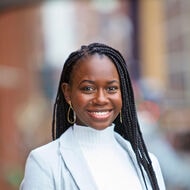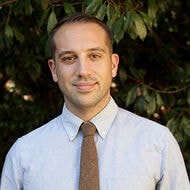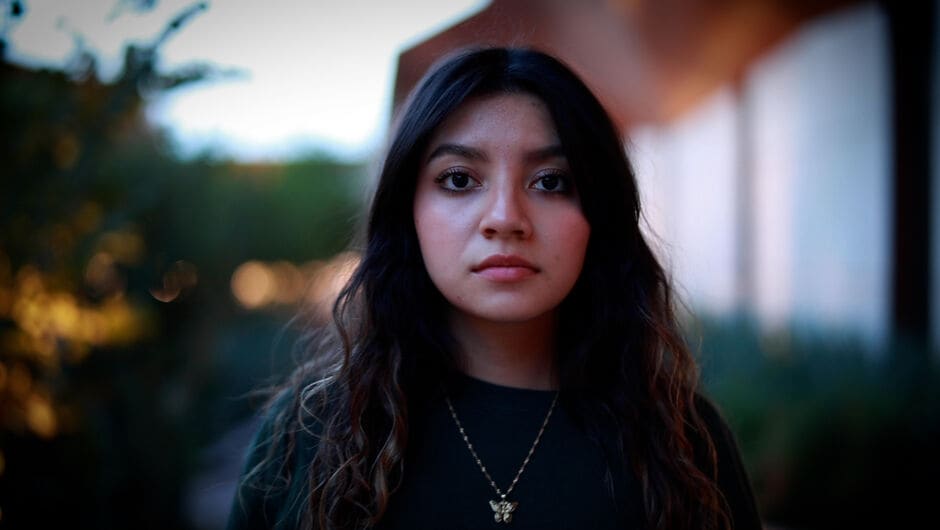
Home Is a Dream and a Cage—but It Doesn’t Have To Be
The lack of a pathway to citizenship and comprehensive reform makes the uncertainty of "home" more difficult for undocumented immigrants.
The phrase “Home Is Here” is chanted at many rallies and seen on platforms calling for the passage of the American Dream and Promise Act, which would offer some immigrants permanent legal status and a path to citizenship.
As a Dreamer who has lived in the U.S. since age 7, I desperately believed the phrase at one point. I embraced it because I did not want to believe that I didn’t belong in the only place I have ever known. Today, my view of the phrase is more nuanced.
In my 21 years living here, the U.S. has become my home. I have made lifelong friends here. I have gone to elementary, middle, high school, and college here. I have also had the privilege to serve my community during my six years as an educator in New York City. For these reasons, the chant “Home Is Here” rings true for me, but with a complication: I am haunted by the lost memories of my other home, and I have not been able to reconcile these two homes because of my immigration status. This is a common experience for Dreamers of this nation: undocumented immigrants who arrived as children, those like myself who are DACA recipients, and undocumented young people who sit in K-12 classrooms with no protections due to being ineligible for DACA.
In order to be eligible for DACA, an applicant must prove that they have continually resided in the U.S. since June 15, 2007. Most of today’s high school seniors were born in 2003, which means that as we descend in the K-12 system from grade 12, fewer and fewer undocumented youth were likely to be born in their birth country and brought to this one within that time frame. Most of them arrived after the eligibility date, and thus are unable to apply for DACA. This is why they are the most unprotected Dreamers.
Two decades have passed since I have had the chance to accompany my grandmother to the market or visit with paternal relatives during Eid celebrations. This extended separation has caused my once close relationships with family members in Senegal to become stuck in time—we hobble to maintain our relationships despite the distance and despite no longer knowing one another. This exemplifies how to live as a Dreamer in the United States is to be denied the right to self-reconciliation. It is to live in the space of not knowing the self. Unlike immigrants who can come and go and reconcile themselves between their two countries, the mechanism of reconciliation is denied to us. If we leave the country, we can’t legally return. The trauma from existing in this state endures in many of us even when it is not apparent.
A recent meeting with President Joe Biden pushed me to realize that for me and many Dreamers, “Home Is Here” is only part of the story.
In May, during a meeting with Biden in the Oval Office, I along with five other DACA recipients shared our stories and our work as school leaders, educators, healthcare workers, and activists. We talked about the challenges that our students and families are currently experiencing as they exist at the cross-section of being undocumented and navigating the effects of a global pandemic.
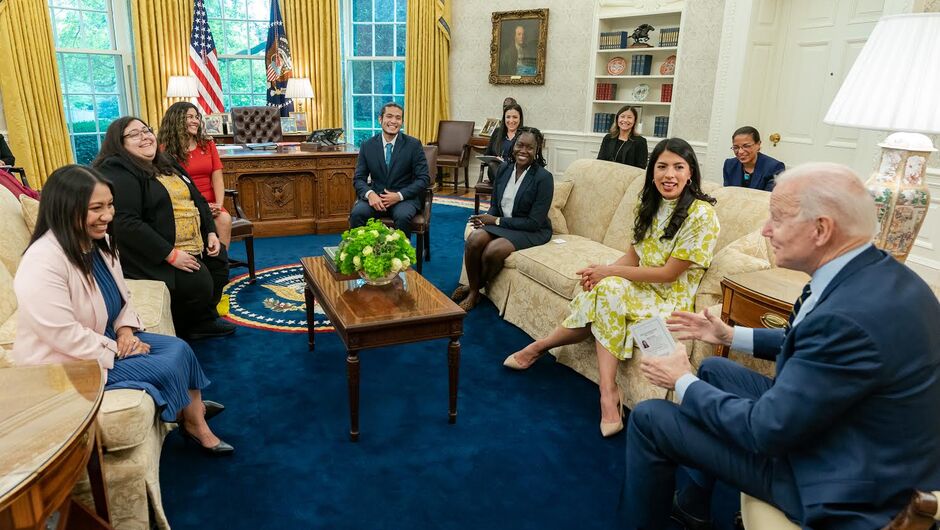
The president lauded each of us for the work that we contribute to our country, affirmed that we are Americans, and expressed his commitment to protecting the Dreamers and the larger 11 million undocumented in our country. While I listened to the president and my peers, I struggled with an unexpected and overwhelming sense of sadness—one that was at first difficult to pinpoint.
After I shared that I was born in Senegal, President Biden excitedly remarked, “Senegal is a beautiful country.” I replied, “That’s what I’ve heard, Mr. President. I hope to be able to see it for myself someday.”
Here, I gave an almost automated response and suppressed the deep feeling of disconnection that I navigate as someone who is displaced from their roots and bonds since childhood. Here, I did what I have learned to do since my elementary years in the U.S: I put on a performance that downplays the pain and confusion that being indefinitely estranged from my birth country has caused. Later in the meeting, Susan Rice, director of the U.S. Domestic Policy Council, shared the beauty she witnessed at a bird sanctuary she visited in Senegal, and my ability to perform as I have been performing since I was a second-grader fell apart. I felt the presence of the weight that I feel having to hear about my country from strangers, to hear their excitement about a place that my ghost-like memories don’t allow me to access. I honored these feelings of loss and wept in the Oval Office, and the president honored my humanity by walking over to me, handing me a tissue, and giving me a warm embrace.
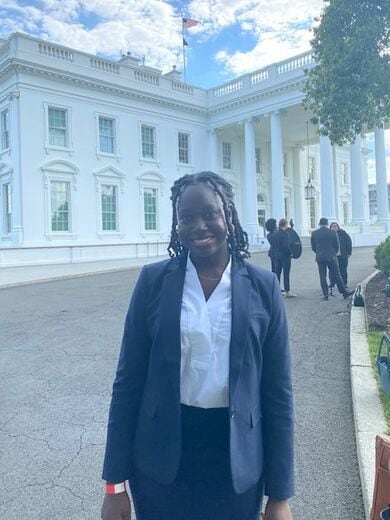
Since our meeting, I have thought a lot about, “What makes a place a home?” Is it being born there? Or is it growing up there? I have landed on this: One must be able to explore and self-determine what or where home is. Having this choice and being able to exercise it is inherent in being American. In the story of the Dreamers, from those who are millennials to those who are Gen Z, this is what is missing. We are the children who have never had the opportunity to choose from where and what we call home. Today, I still struggle with the trauma of this lack of choice, the trauma of being separated from family for 21 years and counting. During this time, I have lost three grandparents in Senegal, all of whom I was close with. I have lost countless other bonds, memories, and parts of my culture. This is an unknown heartbreak that many of us carry into the rooms and classrooms we enter, and this is a part of the story that gets lost in “Home Is Here.”
In my final remarks to the president, I told him that a part of me feels that I have reached the opportunities I’ve had because of luck. I told him that our young people deserve better than luck as they look and plan toward their futures. Undocumented children in our country—who navigate both the trauma of living in the shadows and having complex and confusing notions of “home”—deserve choice. Comprehensive immigration reform, which includes a pathway to citizenship for DACA-protected immigrants, those with Temporary Protected Status, and all undocumented people living in the U.S., offers us a chance at relief from this struggle—a chance at reconciliation. It would offer us the opportunity to lead fuller lives where we can choose to maintain or redefine our connections with all of our families from all of our homes.
Astou Thiane is the assistant principal of humanities at Canarsie Ascend Middle School in Brooklyn. She also is a 2015 Teach for America alumna and DACAmented educator serving in New York City. She was born in Dakar, Senegal, immigrated to the United States at age 7, and was raised in Harlem.
We want to hear your opinions! To submit an idea for an Opinion piece or offer feedback on this story, visit our Suggestion Box.
The opinions expressed in this piece, and all others in our Opinion section, represent those of the authors and do not necessarily reflect the views and opinions of the Teach For America organization
Sign up to receive articles like this in your inbox!
Thanks for signing up!
Content is loading...


